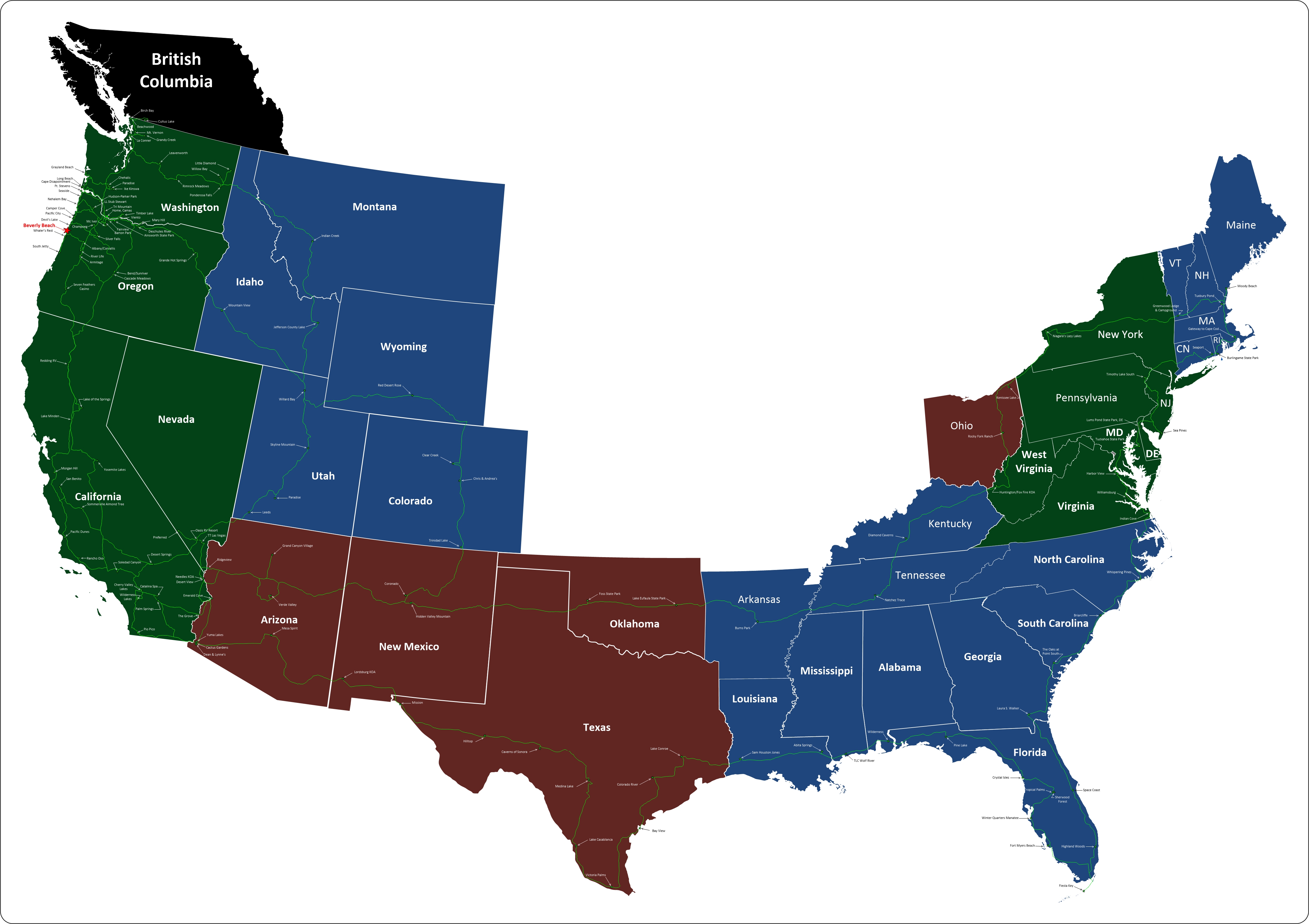Connecticut's first European settlers were Dutchmen who established a small, short-lived settlement called Fort Hoop in Hartford at the confluence of the Park and Connecticut Rivers. Half of Connecticut was initially part of the Dutch colony New Netherland, which included much of the land between the Connecticut and Delaware Rivers, although the first major settlements were established in the 1630s by the English. Thomas Hooker led a band of followers from the Massachusetts Bay Colony and founded the Connecticut Colony; other settlers from Massachusetts founded the Saybrook Colony and the New Haven Colony. The Connecticut and New Haven colonies established documents of Fundamental Orders, considered the first constitutions in America. In 1662, the three colonies were merged under a royal charter, making Connecticut a crown colony. This was one of the Thirteen Colonies which rejected British rule in the American Revolution.
Connecticut is the third smallest state by area,[16] the 29th most populous, and the fourth most densely populated[16] of the 50 states. It is known as the "Constitution State", the "Nutmeg State", the "Provisions State", and the "Land of Steady Habits". It was influential in the development of the federal government of the United States (see Connecticut Compromise).
The Connecticut River, Thames River, and ports along Long Island Sound have given Connecticut a strong maritime tradition which continues today. The state also has a long history of hosting the financial services industry, including insurance companies in Hartford and hedge funds in Fairfield County.




